| A | B |
|---|
Location: South Queensferry and North Queensferry, Scotland, 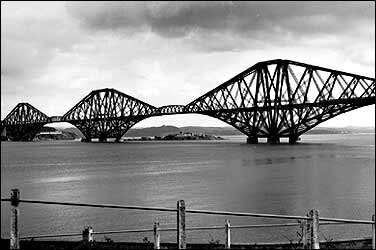 | Firth of Forth Bridge |
Constructed by the Port Authority of New York and New Jersey in the early 1970s, for their time, the best known examples of tube buildings, 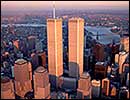 | World Trade Center |
In 1974, the * in Chicago assumed the coveted title of world's tallest building, at 1,454 feet. It held this title for 22 years until 1998, 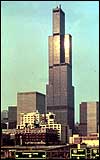 | Sears Tower |
Today, some call the * bridge the "most spectacular bridge in the world." But it had to withstand brutal winds, tide, and fog., 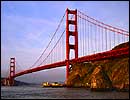 | Golden Gate Bridge |
Currently the longest spanning suspension bridge in the world that stretches 12,828 feet, 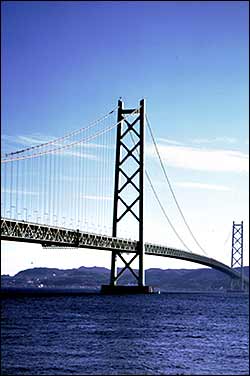 | Akashi Kaiko Bridge |
Location: Cape Charles and Virginia Beach, Virginia, USA; Completion Date: 1964; Length: 89,760 feet, 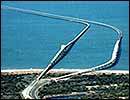 | Chesapeake Bay Bridge-Tunnel |
Built during the Depression between 1930 and 1931, the * became the world's tallest office building., 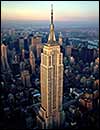 | Empire State Building |
One of the earliest bridge construction methods is the * design, which uses built up stepping stones., 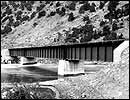 | Beam |
Today, the * is recognized as New York City's greatest display of Art Deco, a decorative style characterized by sharp angular or zigzag surface forms and ornaments & stands at 1,046 feet, 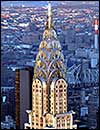 | Chrysler Building |
Built in commemoration of the French Revolution, was the tallest building in the world when it was unveiled at the Paris World's Fair in 1889., 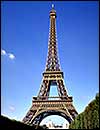 | Eiffel Tower |
What is a bridge that uses a series of triangles to add to its structural strength?, 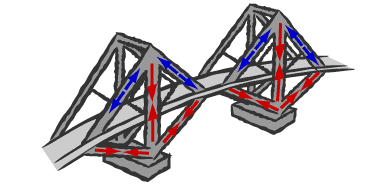 | Truss bridge |
Location: Manhattan and Brooklyn, New York, USA; Completion Date: 1883; Length: 3,460 feet;Type: Suspension, 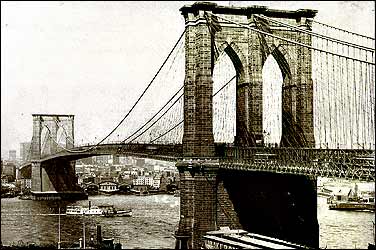 | Brooklyn Bridge |
In 1998, the * peak at an impressive 1,483 feet & is considered the world's tallest buildings, 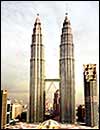 | Petronas Towers |
Location: St. Petersburg and Bradenton, Florida, USA; Completion Date: 1987; Length: 29,040 feet,  | Sunshine Skyway Bridge |
Location: San Francisco and Sausalito, California, USA; Completion Date: 1937; Length: 8,981 feet,  | Golden Gate Bridge |
The * is the part of the bridge that includes the roadway and everything beneath it.,  | substructure |
* is the most common material for foundations, piers, and abutments.,  | concrete |
| Google glasses that allow you to stay connected to the internet; Release of an Agriculture simulator; BP selects Berkley to lead a $500 million to develop Biofuels; Apple famous IPhone & IPod; Genetic engineering and cloning for milk & livestock | 2000-Present |
| First artificial heart is successfully implanted; Columbia space shuttle is reused for space travel; The Concord is first used for supersonic flight between Europe and the U.S. | 1975-1990 |
Firth of Forth Bridge,  | Cantilever |
Chesapeake Bay Bridge-Tunnel,  | Beam |
Golden Gate Bridge,  | Suspension |
New River Gorge Bridge,  | Arch |
Sunshine Skyway Bridge,  | Cable-Stayed |
“The * identifies the equipment necessary to assemble a new CD player; the * designs said CD player”,  | technologist; engineer |
| Detroit becomes center of auto production industry; First commercial flight between Paris and London begins; Ford develops first diesel engines in tractors | 1900-1925 |
The * is the distance between the piers that support the bridge beam.,  | span |
| Agriculture Adjustment Act Created a new USDA; First atomic bomb is used ; The VW Beetle goes into production; John Logie Baird invents a primitive form of television | 1925-1950 |
The roadway is held in place with long structures or arms projecting out into the water,  | Cantilever bridge |
Coa curved structure that converts the downward force of its own weight, and of any weight pressing down on top of it, into an outward force along its sides and basensists of a horizontal structures supported at each end by piers.,  | Beam bridge |
typically span distances between 200 and 800 feet, 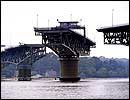 | Arch bridge |
Consists of an assembly of triangles & are commonly made from a series of straight, steel bars,  | Truss bridge |
Supports the roadway with massive steel cables, but in a different way. The cables run directly from the roadway up to a tower, forming a unique "A" shape. Its spans (between 500 and 3,000 feet)., 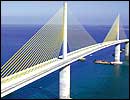 | Cable-Stayed Bridge |
Can span 2,000 to 7,000 feet -- way farther than any other type of bridge & they have a truss system beneath the roadway to resist bending and twisting., 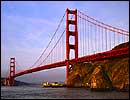 | Suspension bridge |
| 1st Cellular phone was inrtroduced; Farmers started using GPS; 1st portable computer was introducedSinger introduces 1st electronic sewing machnine | 1975-2000 |
Engineering applications in the areas of the science of air flight and the science of space flight., 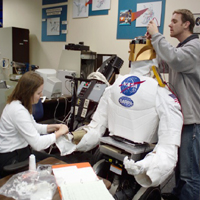 | Aerospace Eng. |
One who designs and operates systems to provide safe drinking water and to prevent and control pollution in water, in the air, and on the land,  | Environmental Engineer |
Communication Systems, Power Generation and Transmission, Industrial Applications, 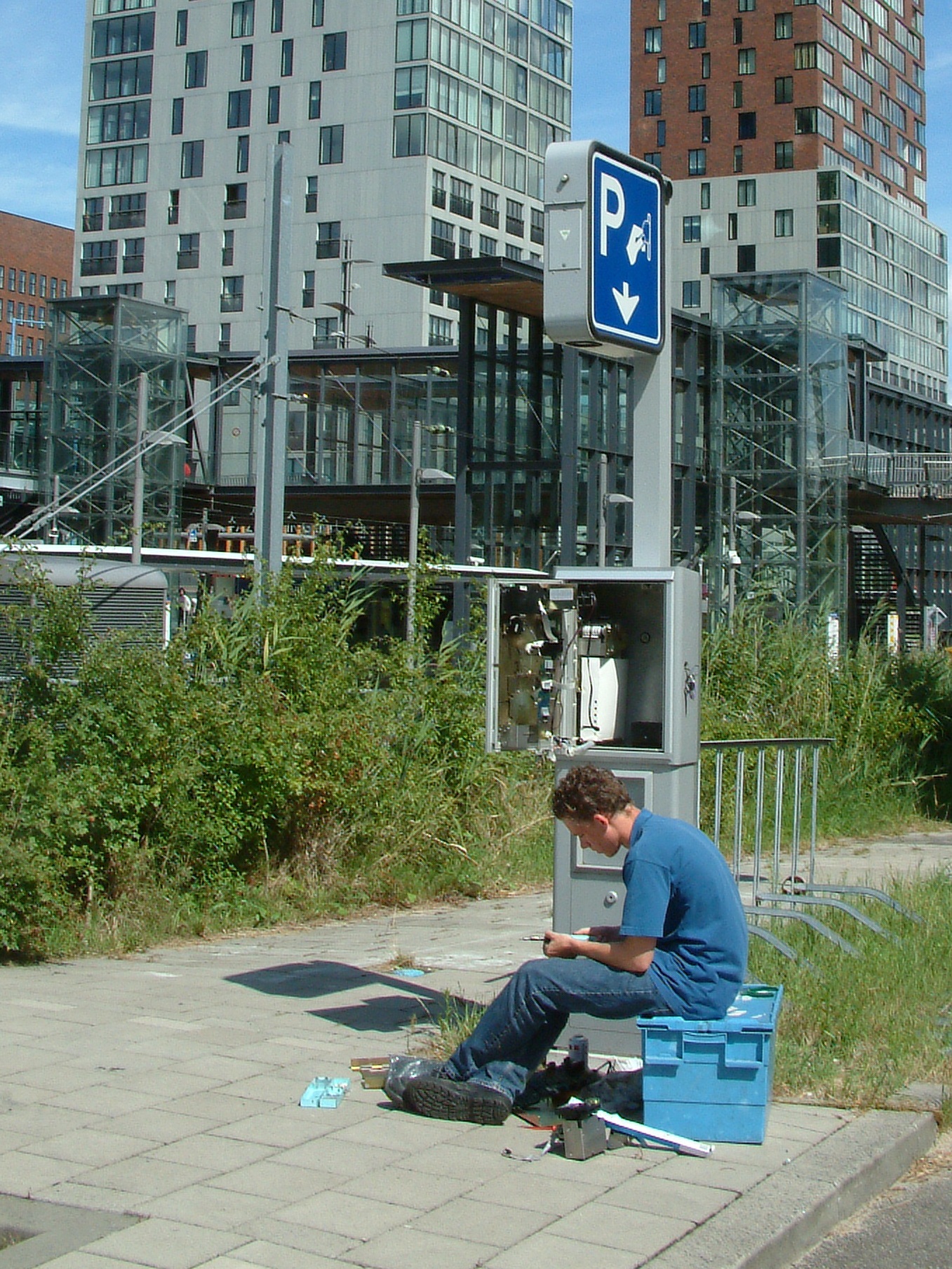 | Electrical Eng |
Bridges and Highways, Skyscrapers, Shipping Facilities and Railroad Lines, 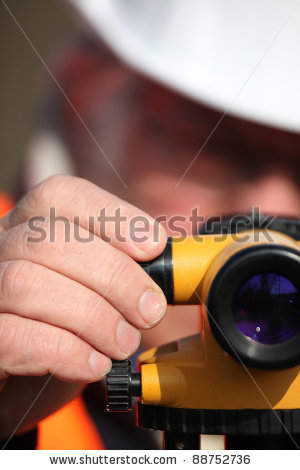 | Civil Engineer |
Design, install, and improve systems that integrate people, materials, and machines to improve efficiency.,  | Industrial Engineer |
Engineer who evaluates and stabilizes foundations for buildings, roads, and other structures, 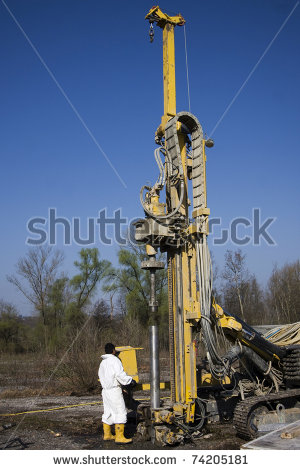 | Geotechnical Engineer |
Focuses primarily on computer hardware, not software,Responsible for the “architecture” of the computer system,  | Computer Engineer |
Deals with power, the generation of power, and the application of power to a variety of machines, ranging from HVAC to space vehicles., 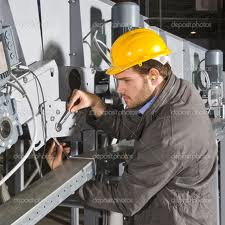 | Mechanical Engineer |
Soil and water, Food engineering, Power and machinery, 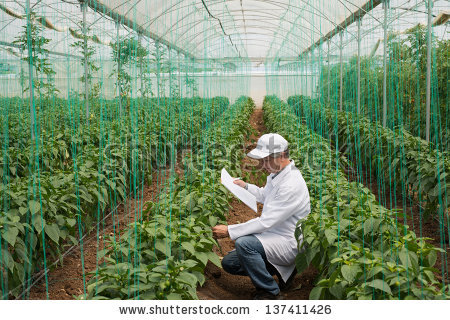 | Agricultural Engineer |
Applies chemistry to industrial processes, such as the manufacture of drugs, cements, paints, lubricants, and the like., 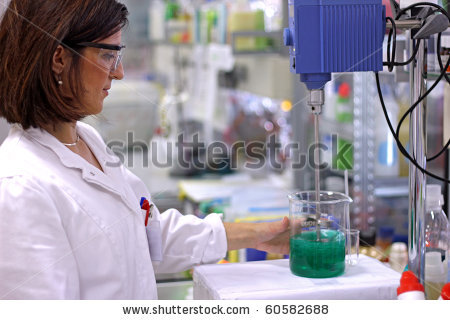 | Chemical Engineer |
| The U.S. completes the first ever moon landing; Sputnik I, the first artificial satellite, put into space by USSR 1st Personal computer; Computers first introduced into the market | 1950-1975 |
* design and manufacture machines and systems, while engineering * have the technical know-how to use and install the machines properly.,  | Engineers; technologists |
| The most effective teamwork is produced when all the individuals involved harmonize their contributions and work towards a * goal. | common |
| Those who believe gay stereotypes may also believe that homosexuality is a _____. | curse |
| For a long time, ____ awarded the highest number of degrees, but that was eventually replaced by ___ engineering. | electrical, mechanical |
| The goodness or badness of human action or behavior is _____. | Morality |
| * point to standards or codes of behavior expected by the group to which the individual belongs. | Ethics |
| What area of engineering is responsible for “molding” raw materials into finished product? | Manufacturing & Construction |
| A ________ engineer might be involved in design, installation, and upkeep of a product | Consulting |
| Simulate instances and environments in which a product would be used by a _____ engineer. | Testing |
| A ______ & ______ engineer would be responsible for maintaining production line. | Operations & Maintenance |
| ______ engineers are knowledgeable in principles of chemistry, biology, physics, and mathematics | Research |
| An ____ engineer uses computational tools and mathematic models to enrich the work of design and research engineers | Analysis |
| Failing to hold a door open for someone might be considered a violation of ___. | etiquette |
| ________ is defined as "a joint action by a group of people, in which each person subordinates his or her individual interests and opinions to the unity and efficiency of the group." | Teamwork |
| * is the largest branch of engineering. | Electrical |
| What area of Biomedical Engineer is application of engineering principles to biological systems? | Bioengineering |
| What area of Biomedical Engineer develops instrumentation for medical uses? | Medical |
| What area of Biomedical Engineer develops systems that help serve the needs of hospitals and clinics? | Clinical |
| ____ is a thought that may be adopted about specific types of individuals or certain ways of doing things, but that belief may or may not be true. | Sterotyping |
| The type of engineer thats bridges the gap between the laboratory and the production facility | Development |
| _____ is the effect of a rotational force applied on a body at some distance from its axis. | Torque |
| The measure of gravitational pull is ___. | weight |
| _____ is the natural phenomenon of attraction between physical objects with mass or energy. | gravitation |
| The quantity that designates the speed and direction in which a body moves. | Velocity |
| A unified body of matter with no specific shape | mass |
| The rate or a measure of the rate of motion | Speed |
| A quantity characterized by magnitude and direction | vector |
| A physical quantity that can be described completely in terms of its magnitude | scalar |
| ____ is the force resisting the relative lateral motion of solid surfaces, fluid layers, or material elements in contact. | Friction |
| Inherent property of a body that makes it oppose any force that would cause a change in its motion. | inertia |
| What law states when one object exerts a force on another, the second object exerts on the first a force equal in magnitude but opposite in direction. | Third law of motion |
| What law states an object at rest will remain at rest, and an object in motion will remain in motion, at a constant velocity unless or until outside forces act upon it. | First law of motion |
| Agency that alters the direction, speed, or shape that a body would exhibit in the absence of any external influence. | force |
| The act or process of changing position or place. | motion |
| Rate of change of velocity. | acceleration |
| The natural force of attraction exerted by a celestial body, such as Earth, upon objects at or near its surface, tending to draw them toward the center of the body. | gravity |
| What law states the net force acting upon an object is a product of its mass multiplied by its acceleration. | Second law of motion |
| What formula is this: A = Vf - Vi / t | acceleration |
| Identify the constants for the variables in this formula: T=F x L | Toorque, Force, Length |
| kg.m/sec^2: This is equal to: | Newton |
| What are the 3 aspects of Environmental Engineering: | Disposal;Remediation;Prevention |
| * define personal character, while * stress a social system in which they are applied. | Morals, ethics |
| A lever turns back and forth on a _______. | fulcrum |
| Six different _______________ can help make work easier. | simple machines |
| A machine that splits an object apart is a ____________. | wedge |
| A _______ is made of a wheel and a rope | pulley |
| A ramp is an example of a _______________. | inclined plane |
| An object being lifted or moved is a _____________. | load |
| ________ is done whenever a force moves an object through a distance. | Work |
| A ______ is a machine used to hold objects together. | screw |
| A ___________moves or turns an object. | wheel and axle |
The clip art shows an example of ______________ .,  | wheel and axle,  |
The clip art shows an example of _____________.,  | inclined planes |
The clip art shows an example of a _____________.,  | lever |
The clip art shows an example of a _____________.,  | pulley |
In the ___ class, the fulcrum is located between the effort and the resistance., 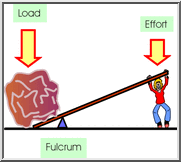 | first |
The_______ class of lever (fig. 1-2, part B) has the fulcrum at one end, the effort applied at the other end, and the resistance somewhere between those points., 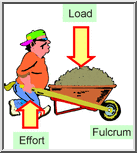 | second |
____ class levers are ones in which the force is placed between the object you want to move and the fulcrum. Examples include your lower arm, tweezers, sugar tongs, etc., 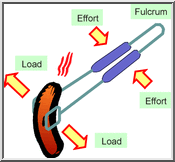 | third |
| The point where a lever pivots (also the point on the lever where the effort arm becomes the resistance arm) is called the * . | fulcrum |
| A * may therefore be defined as a combination of rigid or resistant bodies, formed and connected so that they move with definite relative motions with respect to one another. | mechanism |
| A * is a combination of rigid or resistant bodies, formed and connected do that they move with definite relative motions and transmit force from the source of power to the resistance to be overcome. | machine |
| A ____ is a re-programmable, multifunctional manipulator designed to move materials, parts, tools or specialized devices through variable programmed motions for the performance of a variety of tasks | robot |
| The two key words that are used to define a robot is ___________ & ______________. | multifunctional, re-programmable |
| By closely following the engineering \*, you can accomplish the goal of creating a design that meets the objective in the most cost-effective manner. | design cycle |
| One complete cycle through all the steps of a process is called a/an *. | iteration |
Identify the vex component shown:,  | Bumper switch |
Identify the vex component shown:, 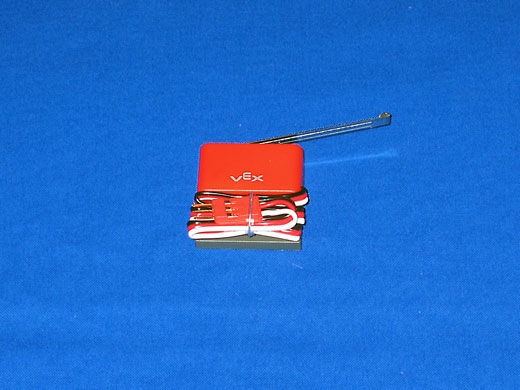 | Limit switch |
Identify the vex component shown:, 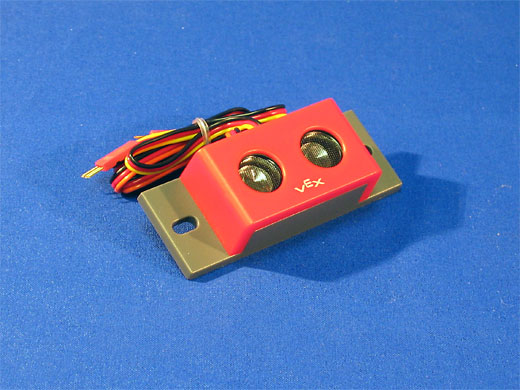 | Ultrasonic sensor |
Identify the vex component shown:,  | Line follow sensor |
Identify the vex component shown:, 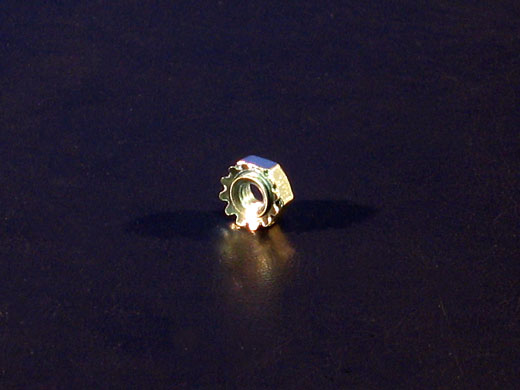 | Keps nut |
Identify the vex component shown:, 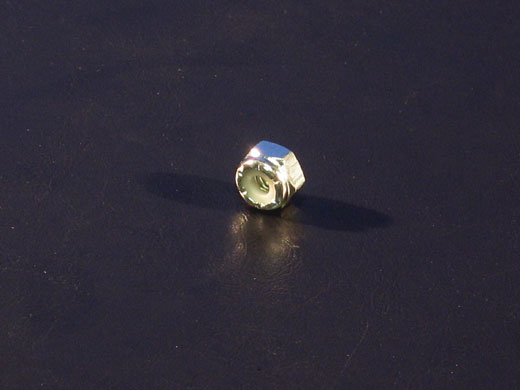 | Lock nut |
Identify the vex component shown:, 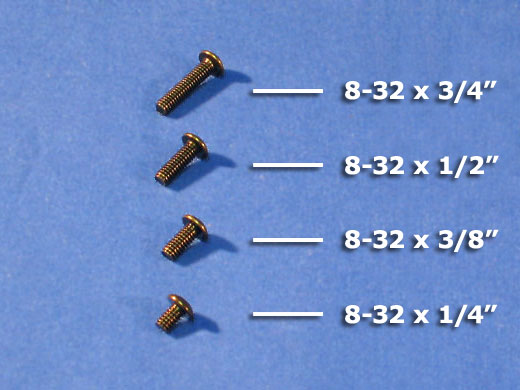 | 8-32 screw |
Identify the vex component shown:, 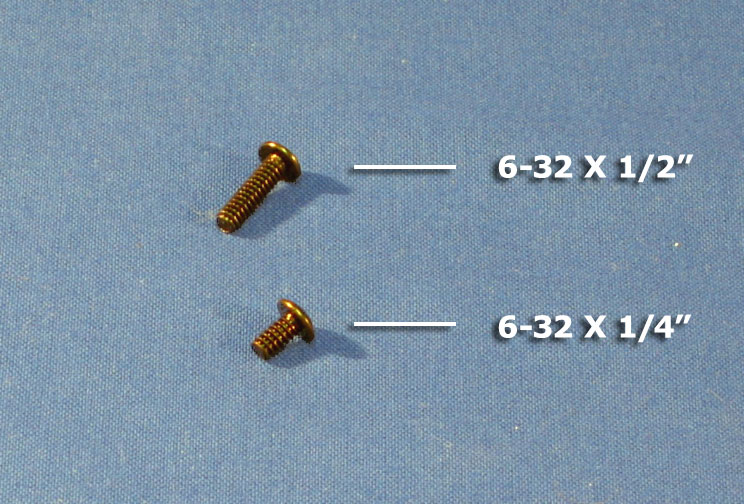 | 6-32 screw |
Identify the vex component shown:, 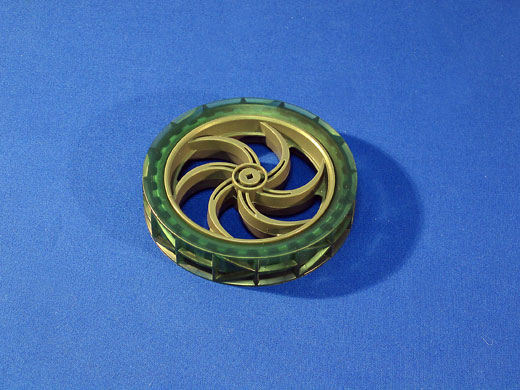 | All-purpose Tire |
Identify the vex component shown:, 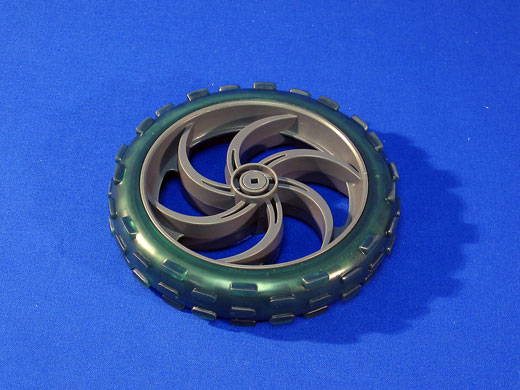 | Knobby Tire |
Identify the vex component shown:, 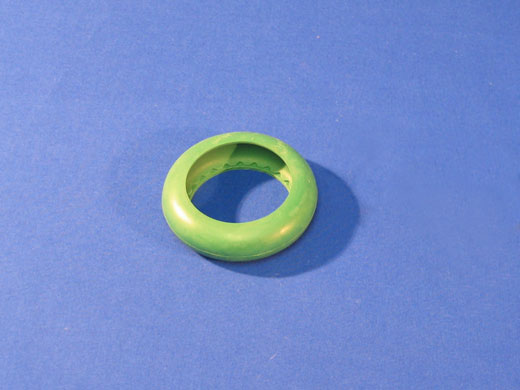 | Removable Tire |
Identify the vex component shown:, 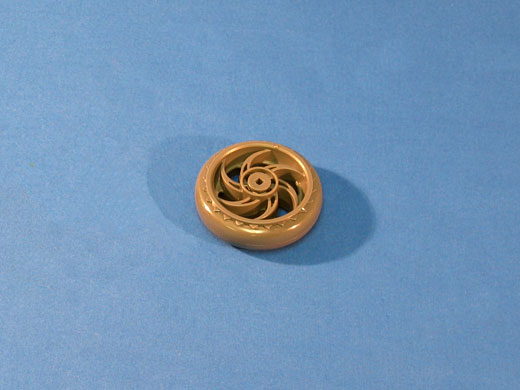 | Removable Hub |
Identify the Structural Components, 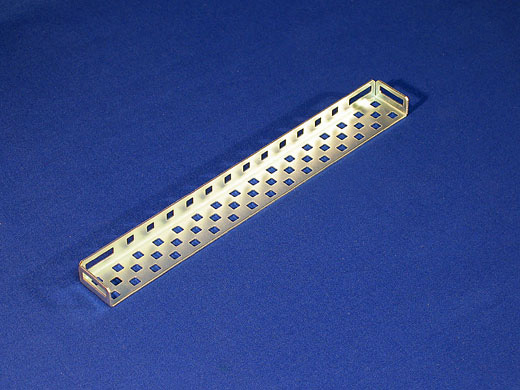 | Chassis Rail |
Identify the Structural Components, 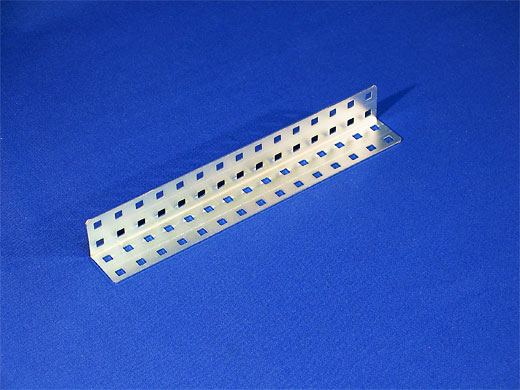 | Chassis Bumper |
Identify the Structural Components,  | Plate |
Identify the Structural Components, 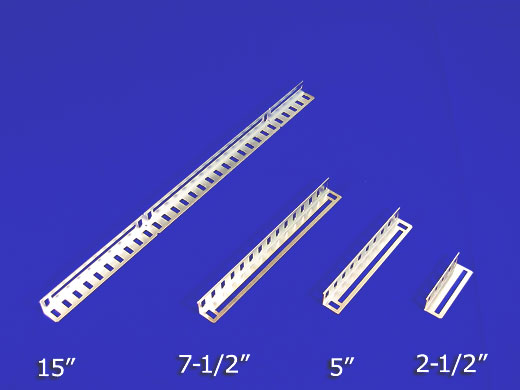 | Long Angle Bar |
Identify the Structural Components, 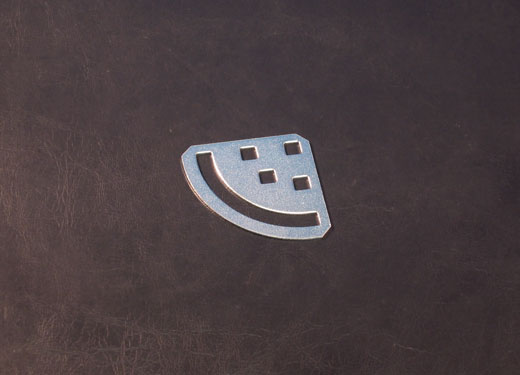 | Pivot |
Identify the Structural Components, 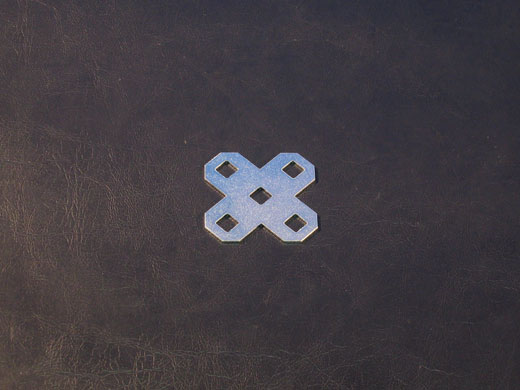 | Plus Gusset |
Identify the Structural Components, 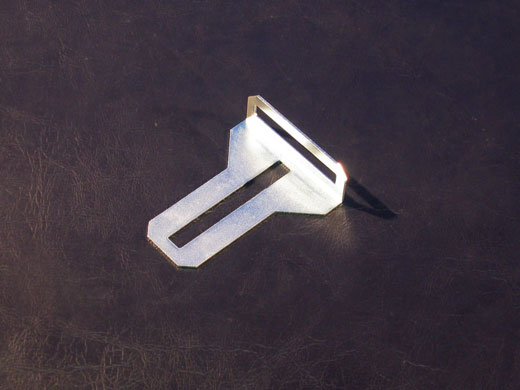 | Gusset |
Identify the Structural Components, 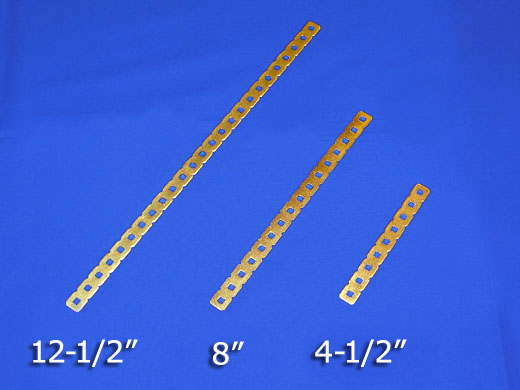 | Flat Bar |
Identify the Structural Components, 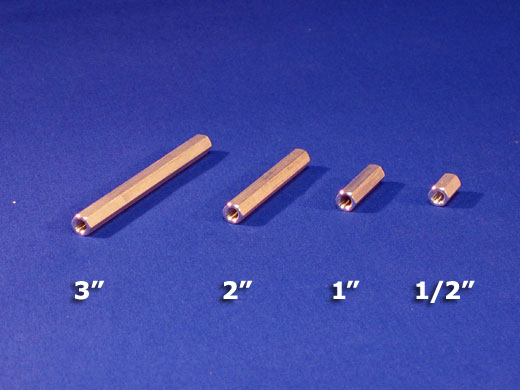 | Threaded Beam |
Identify the Structural Components, 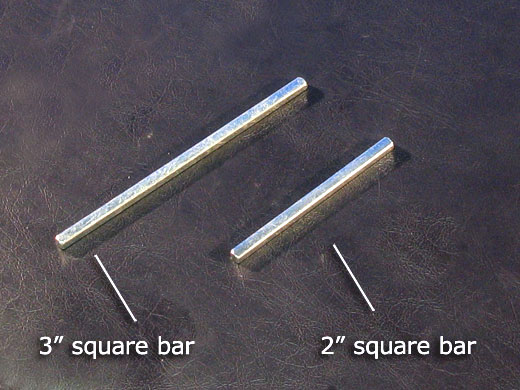 | Square Bar |
Identify the Structural Components, 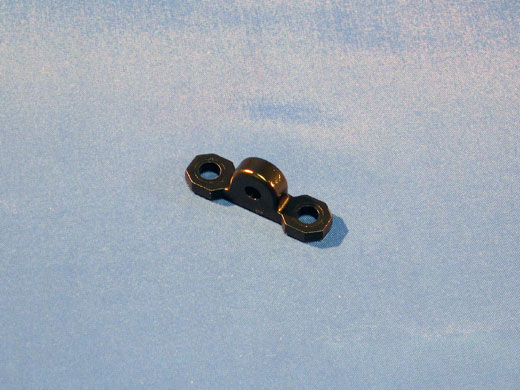 | Bearing Block |
Identify the Structural Components, 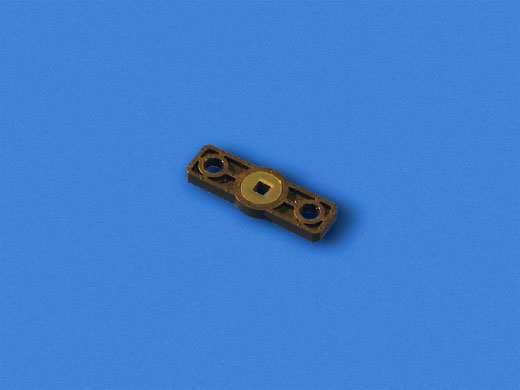 | Locking Plate |
Identify the Structural Components, 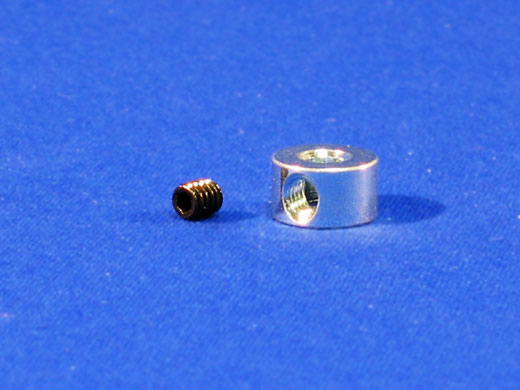 | Collar |
Identify the Structural Components, 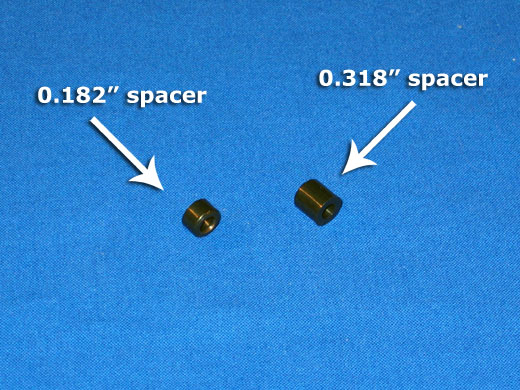 | Plastic Spacer |
Identify the Structural Components, 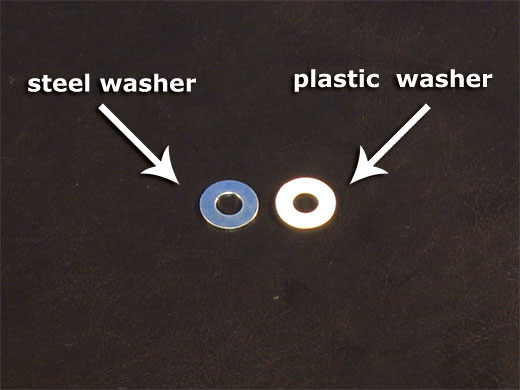 | Washer |
Identifying Control Components, 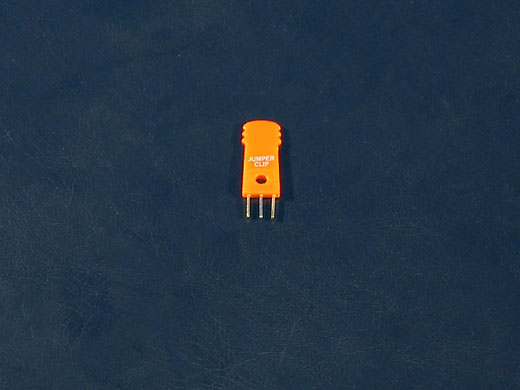 | Jumper Clip |
Identifying Control Components, 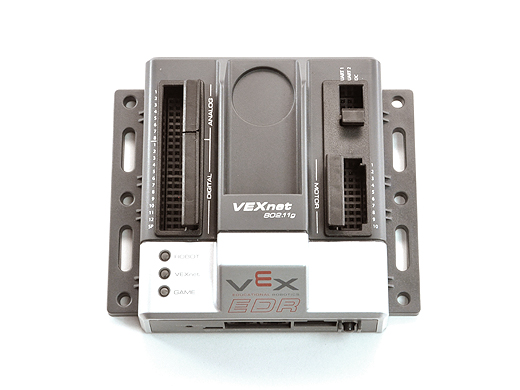 | Controller |
Identifying Control Components, 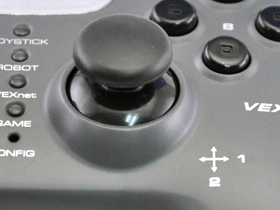 | Transmitter |
Identifying Control Components, 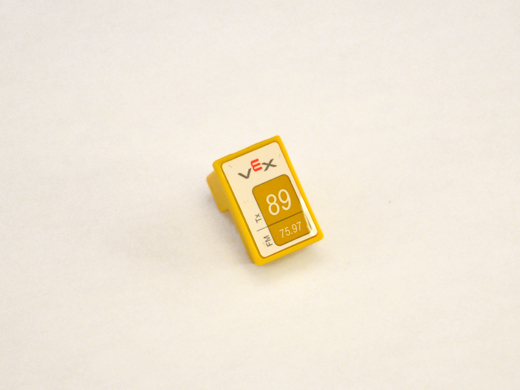 | Transmitter Frequency Module |
Identifying Control Components, 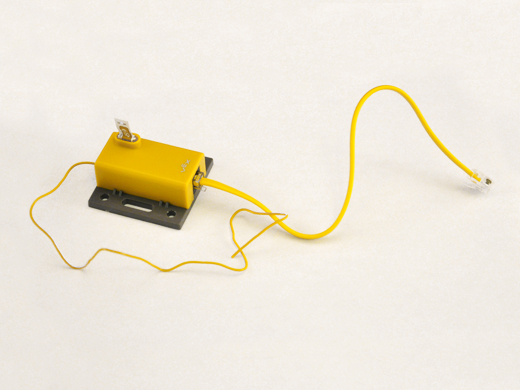 | RF Receiver Module |
Identifying Programming Components,  | Receiver Crystal |
Identifying Programming Components, 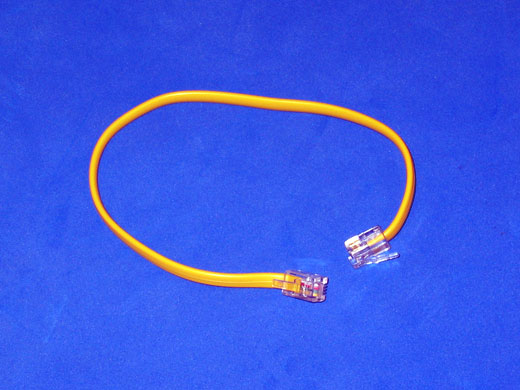 | RJ-10 Receiver Cable |
Identifying Components, 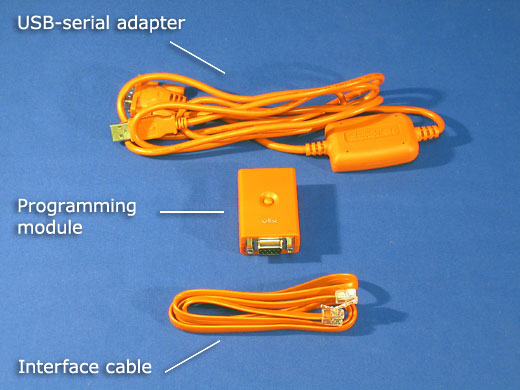 | Programming Components |
* is a fastener that has a matrix of small hooks on it; the other part has a similar matrix of small loops, when these two parts are pressed together, the hooks and loops mesh creating a mechanical bond, 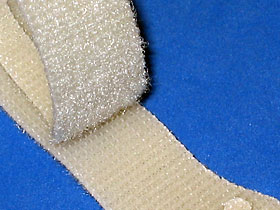 | Velcro |
A \* is a smooth cylindrical fastener with a head used to permanently hold two pieces of material together., 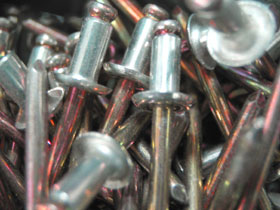 | rivet |
Screws can be identified by five main attributes: They are Type, Material, Diameter,*, *.,  | Length, Thread Pitch, 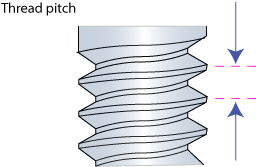 |
There are many different types of screws. They are typically categorized by drive type, function & *.,  | head style, 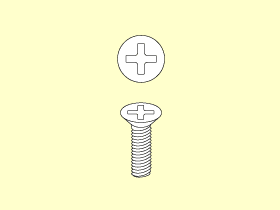 |